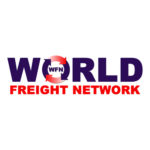Automotive Industry
The automotive industry relies heavily on logistics to ensure the timely delivery of materials and components to manufacturing plants and the efficient distribution of finished vehicles to dealerships and customers. Any disruptions in the logistics process can significantly impact production schedules, supply chain performance, and ultimately, the company’s bottom line.
We know it! And that’s why GLC is the partner your company is searching for. Our best-in.-class technology systems and management strategies will cover every stage at manufacturing operations. The automotive industry encompasses a variety of different types of companies involved in the design, development, production, marketing, and sale of vehicles. Some of the common types of companies that belong to the automotive industry include:
- Automakers
- Parts suppliers
- Dealerships
- Aftermarket suppliers
- Finance and insurance companies
- Rental car companies

The Expanding Global Automotive Logistics Market
According to a report by Markets and Markets, the global automotive logistics market is expected to reach USD 472.9 billion by 2025, growing at a compound annual growth rate (CAGR) of 5.6% from 2020 to 2025. The market has increased due to massive vehicle production, especially in Asia and Oceania, infrastructure projects, and the advent of electric vehicles.
Why Should CPG Companies Choose GLC’s Logistics Solutions?
Freight Forwarding
Freight forwarding in the automotive industry supply chain involves the transportation of raw materials, components, and finished vehicles. GLC has global freight partners allowing us to offer flexible & timely deliveries.
Customs Brokerage
The automotive industry is subject to environmental, safety, & trade regulations. GLC ensures compliance to avoid delays and penalties, and will help you navigate the strict rules of importing your vehicle motors & parts.
Warehousing & Distribution
Warehousing for the automotive industry means storage space, climate-controlled environments, efficient organization, and security. GLC combines these to offer the best warehousing service in our 7 national hubs.
All-Risk Cargo Insurance
Automotive companies often transport vehicles over long distances with various modes of transportation, exposing their products to a range of risks. Our All-risk cargo insurance provides coverage in case something goes wrong.
Our Certifications



Our Network Affiliations







